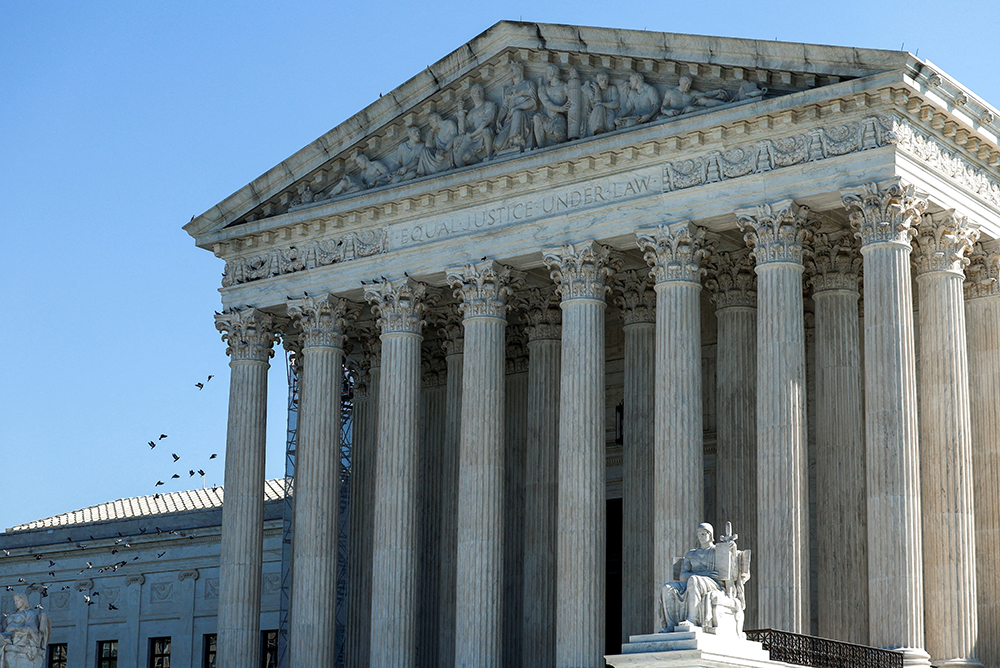
WASHINGTON — The Supreme Court agreed Dec. 13 to look at a dispute over the availability of a commonly used abortion pill, mifepristone, making it the first abortion case it will hear since its decision overturning Roe v. Wade last year.
The court will hear the appeal this term, likely in the spring, from the drug’s manufacturer and the Biden administration over an appellate court’s recent decision limiting the abortion drug’s availability.
In April, U.S. District Judge Matthew Kacsmaryk in Texas sided with those challenging the abortion drug and suspended its FDA approval. In response, the Justice Department filed an emergency appeal to the 5th Circuit.
The three-judge panel of the U.S. Court of Appeals for the Fifth Circuit said the drug’s initial approval should not be revoked, but they agreed with the Texas judge that the challengers were likely to win on other claims, such as the drug’s availability by mail and a provision that allowed the pills to be prescribed to women at up to 10 weeks of pregnancy instead of the previous seven weeks.
The Supreme Court, in a brief order in late April, put the lower court rulings on hold pending appeals, leaving access to the abortion pill in place for now. It also turned down an appeal from abortion opponents challenging the FDA’s initial approval of mifepristone in 2000 as a safe and effective medication.
The lawsuit against the abortion pill was filed last November by the group Alliance for Hippocratic Medicine on behalf of itself and member groups such as the Catholic Medical Association, the Christian Medical and Dental Associations, and other pro-life groups, represented by the religious liberty law firm, Alliance Defending Freedom.
Their lawsuit claimed the FDA “ignored the potential impacts of the hormone-blocking regimen on the developing bodies of adolescent girls” and disregarded evidence that chemical abortions cause more complications, particularly bleeding, than surgical abortions.
Mifepristone, also known as RU-486, is the first of a two-drug regimen used to end a pregnancy in its early stages.
Leaders of the U.S. Conference of Catholic Bishops have been vocal in their opposition to the drug since it was first given FDA approval. They echoed objections in 2016 when the FDA relaxed rules for its use, saying it could be administered with fewer visits to a doctor, and they also objected earlier this year when the FDA announced it was allowing some retail pharmacies to distribute the drug.
Pro-life leaders applauded the initial ruling earlier this year by the Texas judge to restrict access to mifepristone. “This decision shines a light on something that the Biden administration wants to sweep under the rug — that these drugs do not treat or cure disease but kill unborn children and expose their mothers to dangerous side effects. The FDA should be in the business of ensuring safety, not in taking lives,” said Carol Tobias, president of National Right to Life.
Dennis Poust, executive director of the New York State Catholic Conference, said in a statement this spring that the goal of mifepristone is “to end a developing human life in the womb, which is always a tragedy. However, the question before the courts involves the drug’s safety for women and whether the FDA’s approval process in that regard was flawed.”
Poust added: “While we can’t predict what the courts will ultimately rule, the reality is for the pro-life movement to be truly successful in building a culture of life, it will be less about litigation and legislation and more about converting hearts and minds, and giving women in crisis pregnancies the supports they need to encourage them to carry their babies to term.”
